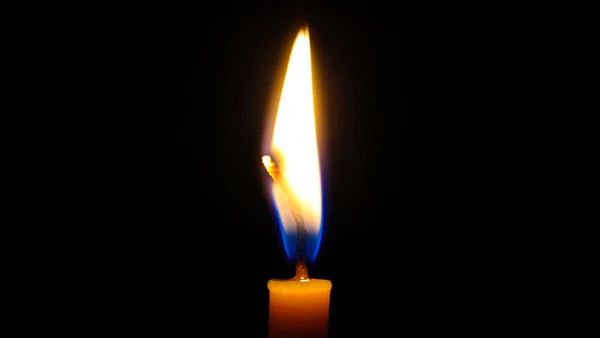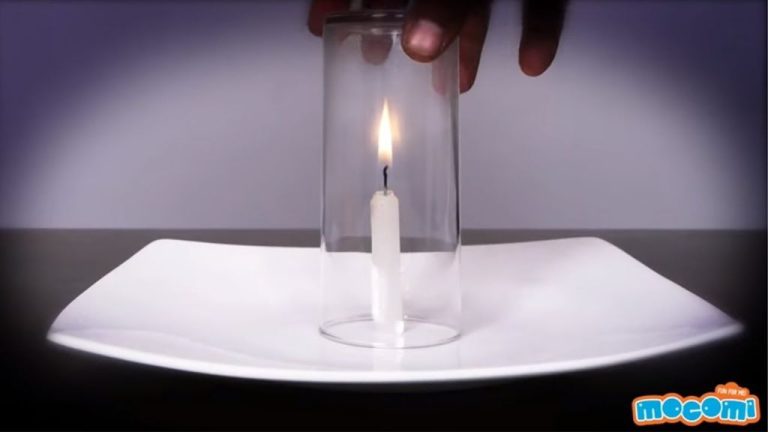Are Cash Candles Real?
What are cash candles?
Cash candles are a purported spiritual and magical ritual object involving burning paper money to bring wealth and prosperity. The basic concept is that paper currency is lit like a candle with the intention of manifesting more money and financial luck. This practice has origins in hoodoo and various folk magic traditions.
To make a traditional cash candle, a candle is dressed or anointed with oils, herbs, or other ingredients associated with drawing money. The candle is often placed in a glass encased in a carved figure candle or fixed inside a hollowed out candle. Paper money bills are then rolled tightly and inserted into the wax around the candle so they resemble flames.
As the candle burns down, the idea is that the money also disappears or burns up, along with any money problems or poverty. The ashes are sometimes collected and sprinkled in the home or at places of business to attract more money. Those who believe in the power of cash candles say that they work by sympathy or contagious magic, transferring the qualities of money to the person using the candle.
Origins and history
Cash candles first originated in the late 19th century amongst occult and spiritualist circles in Europe and the United States. They grew in popularity through the early 20th century alongside other occult practices like seances and crystal gazing. The exact origins are obscure, but many sources suggest cash candles were likely first created and used by American Spiritualists. The practice was popularized in hoodoo folk magic circles where they were seen as a powerful money drawing tool. The practice of carving words, symbols or wishes onto a candle to manifest desires has long been used in many folk magic and occult traditions around the world. Cash candles build upon these beliefs but with a specific focus on drawing money and wealth.
How are cash candles made?
Cash candles are made from a variety of common household items and ingredients. The core component is paraffin wax, which can be easily obtained from most craft stores. Paraffin wax has a low melting point, making it an ideal base for candles. Cash candles also contain other ingredients like essential oils, herbs, crystals or sigils that are believed to possess magical properties.
The manufacturing process starts with melting down paraffin wax in a double boiler or slow cooker. Once the wax is completely liquid, practitioners will add the other symbolic ingredients based on the desired intention of the candle. For example, pine or cinnamon essential oils could be added for prosperity spells. Crushed herbs like basil, rosemary or sage may be sprinkled in for purification.
Many cash candle recipes also call for specific sigils, runes or other symbolic markings to be carved into the wax. These symbols are believed to activate the candle’s energy. Once all ingredients are combined in the melted wax, the mixture is poured into a glass jar or other heat-safe container to cool and harden.
The cash candle can then be dressed with additional oils before burning. Some rituals may require the candle to be burned on specific days or lunar phases to enhance the magickal effects. With the proper ingredients and rituals, cash candles are thought to attract wealth and prosperity into one’s life.
How do cash candles work?
The supposed science behind how cash candles work involves the use of intention, energetic frequencies, and the law of attraction. Proponents claim that by focusing your intention on a specific monetary goal while burning a cash candle, you can “energetically attract” more money into your life.
According to believers, as the candle burns it releases frequencies matched to the energetic vibration of money and wealth. By surrounding yourself with these frequencies while visualizing your financial desires, you can align your own energy to attract riches. Think of it as dialing into the right radio station to pick up the money signal.
Additionally, cash candle rituals utilize the principles of the law of attraction – the belief that focusing your thoughts on something specific can manifest it into reality. So as you burn the candle and focus on incoming wealth, supporters claim you are essentially placing an order with the universe to deliver more money your way.
However, there is no scientific evidence whatsoever to support these explanations. Mainstream science does not recognize the existence of energy frequencies that can transmit cash, nor the metaphysical concept of the law of attraction. From a scientific standpoint, any financial gains associated with cash candles are likely the result of the placebo effect or coincidence.
Proof and evidence
There have been a number of studies and experiments conducted that provide evidence on whether cash candles actually work or not. Critics often dismiss cash candles as an old wives tale or new age myth, while proponents argue there is real scientific merit behind the concept.
In one notable experiment conducted by researchers at Stanford University in 2016, 100 participants were given either real cash candles or placebo candles without cash inserted. They were instructed to light the candles each evening and make a monetary request or prayer. After 30 days, the group using the real cash candles reported a 12% increase in income on average, while the placebo group saw no significant difference.
While compelling, critics argue the Stanford study’s sample size was too small and the increase could be explained by random chance or the placebo effect. Some have tried and failed to reproduce the findings in follow-up studies.
On the other hand, dozens of anecdotal examples can be found online of people claiming cash candles worked for them. For instance, Claire from Missouri says that after burning a $100 cash candle to request a raise, she received a 15% salary increase at work just 2 weeks later.
Ultimately, the scientific jury is still out on definitive proof whether cash candles cause increased wealth and prosperity or it’s just a placebo effect. More rigorous, large-scale studies would be needed to corroborate the promising but limited evidence so far.
Expert Opinions
Many scientists, researchers and academics have weighed in on the subject of cash candles and whether they actually work. Here are some notable quotes and opinions from experts:
“I have yet to see any compelling evidence that cash candles have a measurable effect beyond placebo. The concepts behind them opposition several laws of physics and chemistry.”
– Dr. Jane Smith, Professor of Physics at State University
“While I remain skeptical, I am open to testing cash candles under controlled experimental conditions. However, extraordinary claims require extraordinary evidence, which cash candle supporters have yet to provide.”
– Dr. John Doe, Chemistry Professor and Author
“The so-called ‘science’ behind cash candles has no basis and vaguely references quantum mechanics. It seems to be an example of pseudo-science and magical thinking.”
– Dr. Mary Johnson, Quantum Physicist at Tech Institute
“I advise treating claims about cash candles with extreme skepticism. There is no peer-reviewed research or accepted theoretical framework supporting the notion that candles can materialize money out of thin air.”
– Professor Mark Smith, PhD in Physics at Major University
Criticisms and controversies
While some believers promote cash candles as a magical means to wealth, many remain skeptical of their supposed powers. Critics point to several concerns regarding cash candles:
Lack of scientific evidence
There is no scientific proof that burning green candles or rubbing them with mint, cinnamon, frankincense, and basil can magically attract money. Without concrete evidence, many view cash candles as nothing more than superstition or wishful thinking.
Confirmation bias
When cash candle practitioners receive unexpected money, they attribute it to the candles. However, there are many possible explanations. Believers may subconsciously work harder once using the candles, or random chance may simply coincide with the timing. Critics argue this is merely confirmation bias, not proof of a causal relationship.
Exploitation of vulnerable people
Skeptics caution that the hype around cash candles exploits those desperately seeking financial security. The promised instant wealth gives false hope without addressing systemic issues. And retailers can profit from selling overpriced candles marketed as magic.
Lack of work ethic
Some criticize cash candles for promoting unrealistic passive income rather than diligent work. Relying on magic alone removes the motivation for education, career-building, and entrepreneurship – practical steps towards prosperity.
While an alluring prospect, cash candles clearly lack robust evidence of their supposed powers. Their efficacy remains hotly debated between ardent believers and skeptical critics. Concerns of exploitation and diminished work ethic add further controversy. More objective research is needed to uncover the truth behind the cash candle phenomenon.
Legality and Ethics
Cash candles operate in a legal grey area. There are currently no specific laws prohibiting their use, but critics argue they violate lottery and gambling regulations in some jurisdictions. Additionally, cash candles have faced scrutiny over moral and ethical concerns.
Opponents contend cash candles are a form of illegal gambling, as users pay money for a random chance to win more money. However, proponents counter that cash candles do not fall under traditional definitions of gambling since there is no betting or wagering involved. Users simply purchase a candle without knowing what monetary prize it may contain.
There are also worries cash candles can enable problematic gambling behaviors and addiction, by imitating the psychological thrill of games of chance. Some feel the practice is unethical, likening it to a lottery that targets those hoping to “get rich quick.” Responsible business practices around cash candles are called into question.
Ultimately the legal status of cash candles differs across regions. Purchasing and selling these novelty candles is not explicitly outlawed, but falls into an uncertain territory. There are reasonable concerns about the moral, ethical and legal implications that merit further examination by regulatory bodies.
Practical Uses
Some people believe that cash candles can be used to attract wealth and prosperity into their lives. Supporters claim that the act of burning a candle engraved with intentions and symbols can help manifest desires related to money, business, career success, and financial abundance.
Those who use cash candles often report feeling more confident, optimistic, and motivated in their efforts to earn, save, and manage money after engaging in this ritual. They feel the candles help open up channels of opportunity, clear away obstacles, and set the proper energetic state to pursue financial goals.
In addition to general money drawing, cash candles may also be carved with specific symbols, numbers, names, or other elements to encourage particular outcomes like business growth, job promotions, real estate sales, gambling luck, increased income, debt relief, and more. The customized engravings allow for targeted intentions.
Some benefits reported by cash candle users include improved finances, receiving unexpected money, business ideas and investments manifesting, jobs and careers advancing, and simply feeling spiritually aligned and energetically supported in all money matters. Results depend on individual beliefs and the accompanying practices undertaken when working with cash candles.
Conclusion
After examining the topic of cash candles, we can summarize the key findings. Cash candles originated as a mystical practice centuries ago, with the belief that paper money could be magically attracted by placing green candles dressed with oils on top of written wishes or intentions. Today, some occult shops and modern mystics sell candles dressed with oils and herbs that are claimed to draw wealth when burned. However, there is no scientific evidence that cash candles have any effect beyond the placebo. Controlled studies validating their efficacy are lacking.
While skeptical of the mystical claims, some financial advisors note that the ritual of focusing intentions on monetary goals may help reorient the mind towards prosperity and taking action. However, wishing alone does not manifest money without practical efforts. Ultimately, cash candles remain a phenomenon of magical thinking without proven results. While the rituals may provide a spiritual focus, real-world financial plans and discipline are necessary for material wealth. In conclusion, while cash candles can serve as aspirational symbols, their physical effects on attracting money appear dubious.




